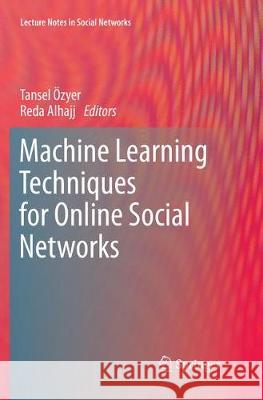Machine Learning Techniques for Online Social Networks » książka
topmenu
Machine Learning Techniques for Online Social Networks
ISBN-13: 9783030078966 / Angielski / Miękka / 2018 / 236 str.
Kategorie:
Kategorie BISAC:
Wydawca:
Springer
Seria wydawnicza:
Język:
Angielski
ISBN-13:
9783030078966
Rok wydania:
2018
Wydanie:
Softcover Repri
Numer serii:
000408261
Ilość stron:
236
Oprawa:
Miękka
Wolumenów:
01











